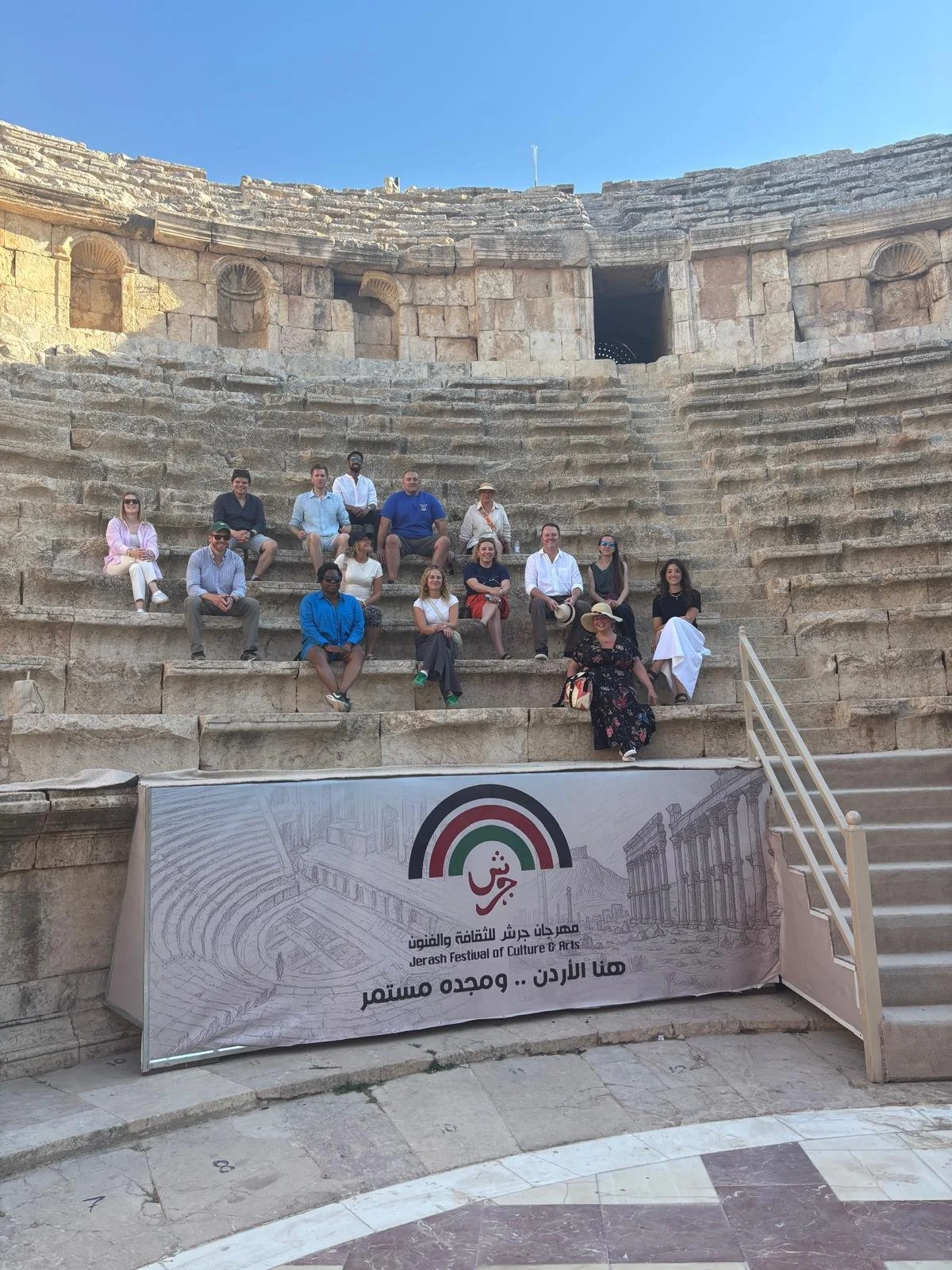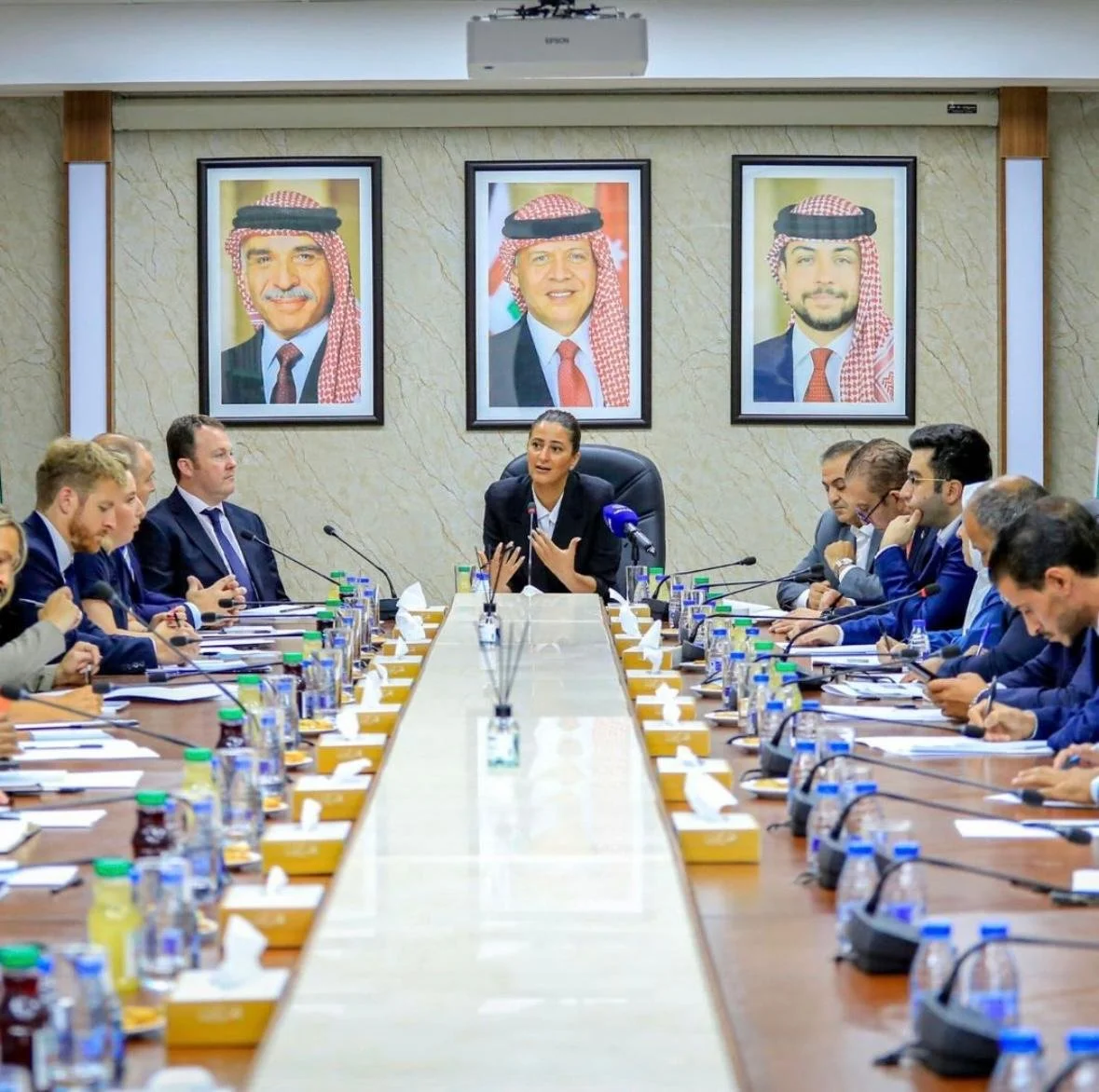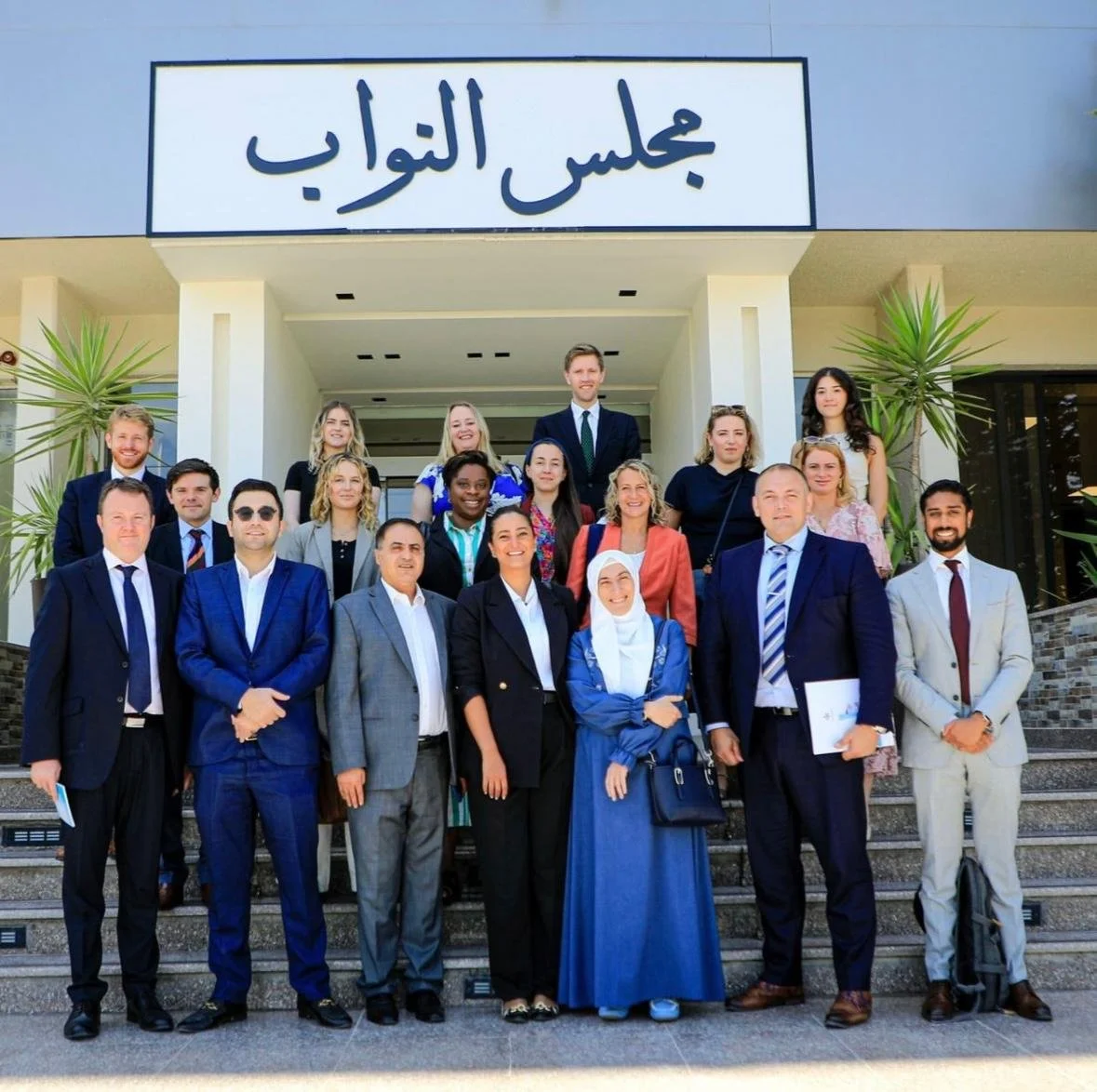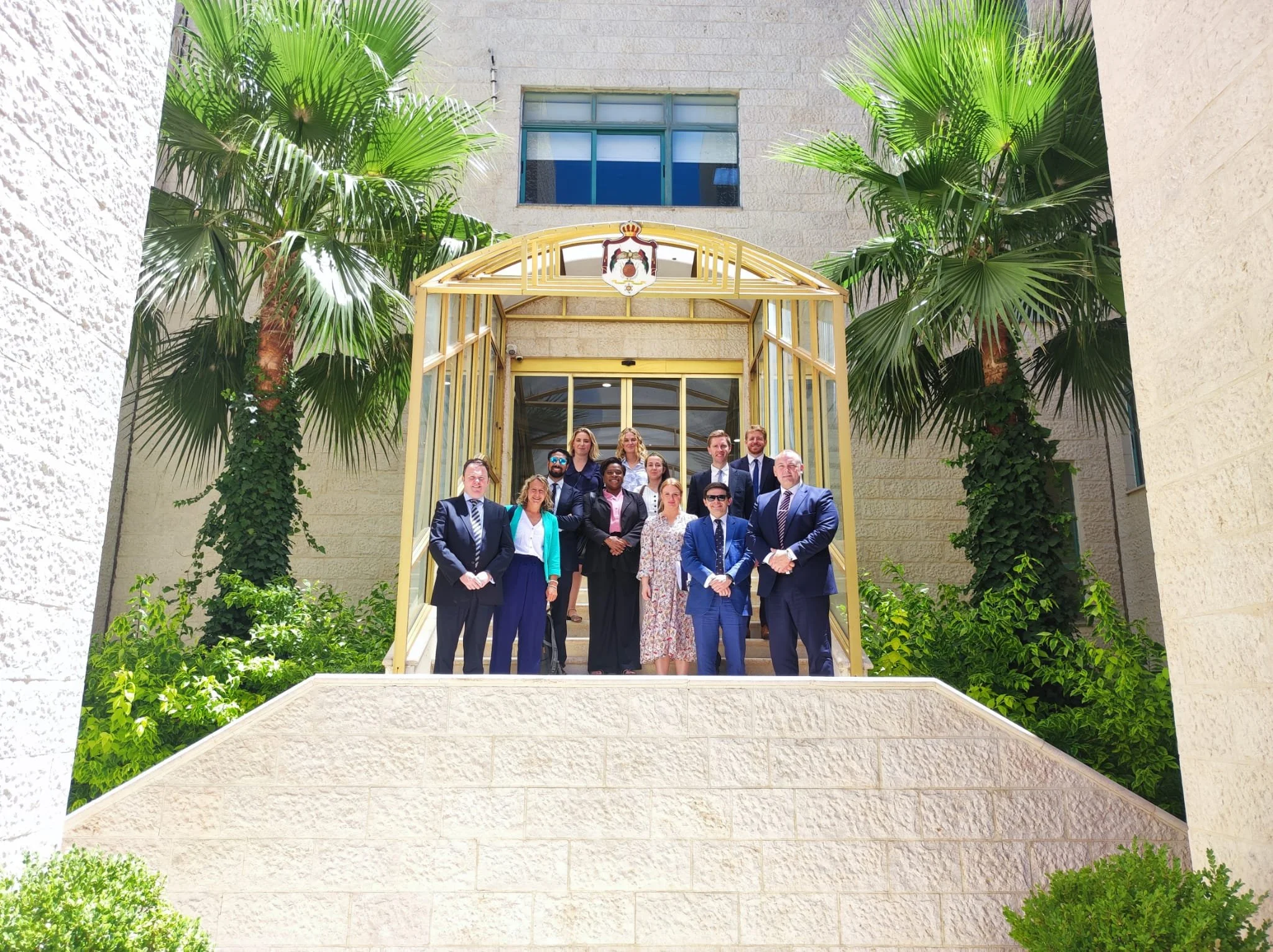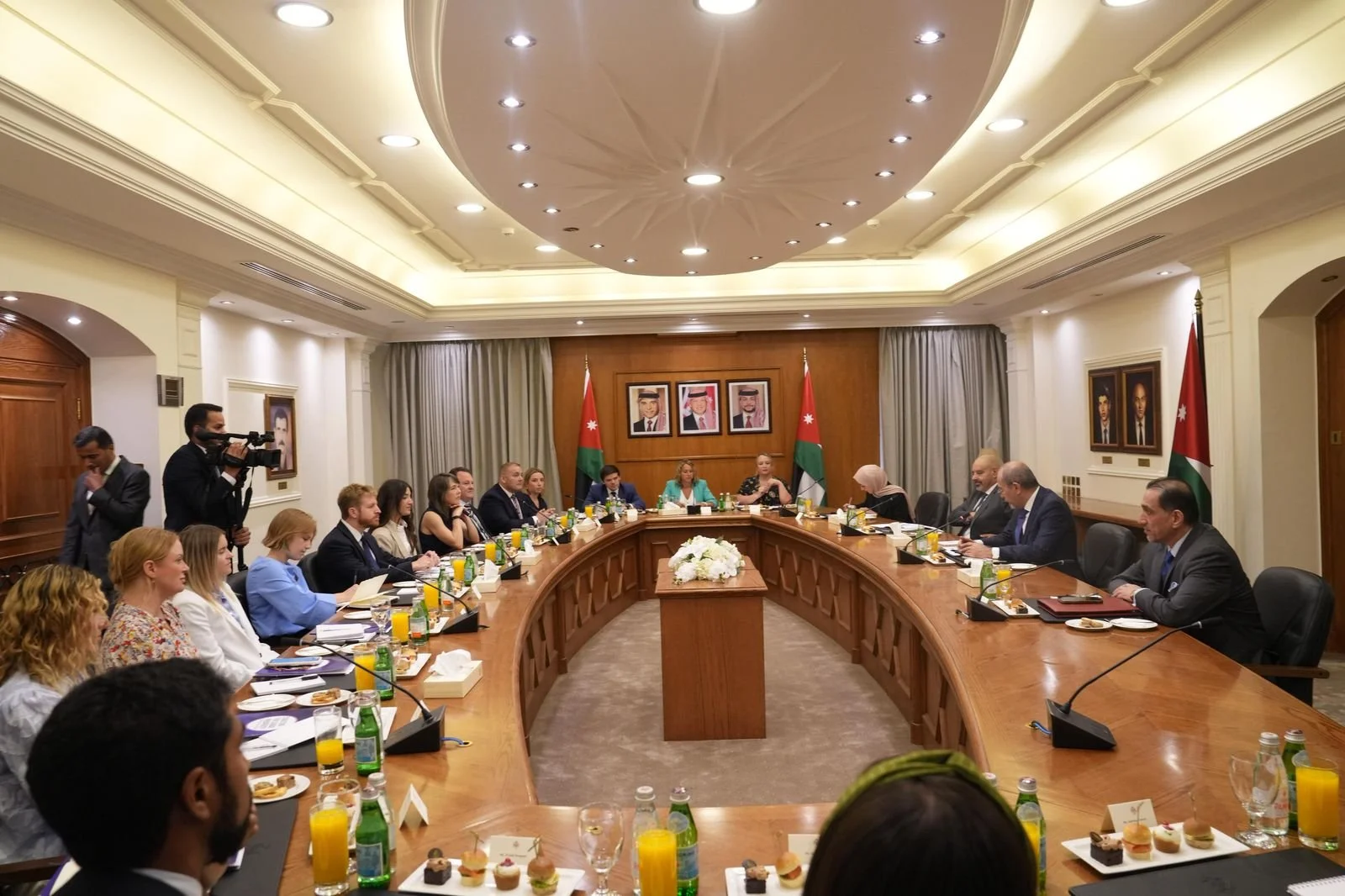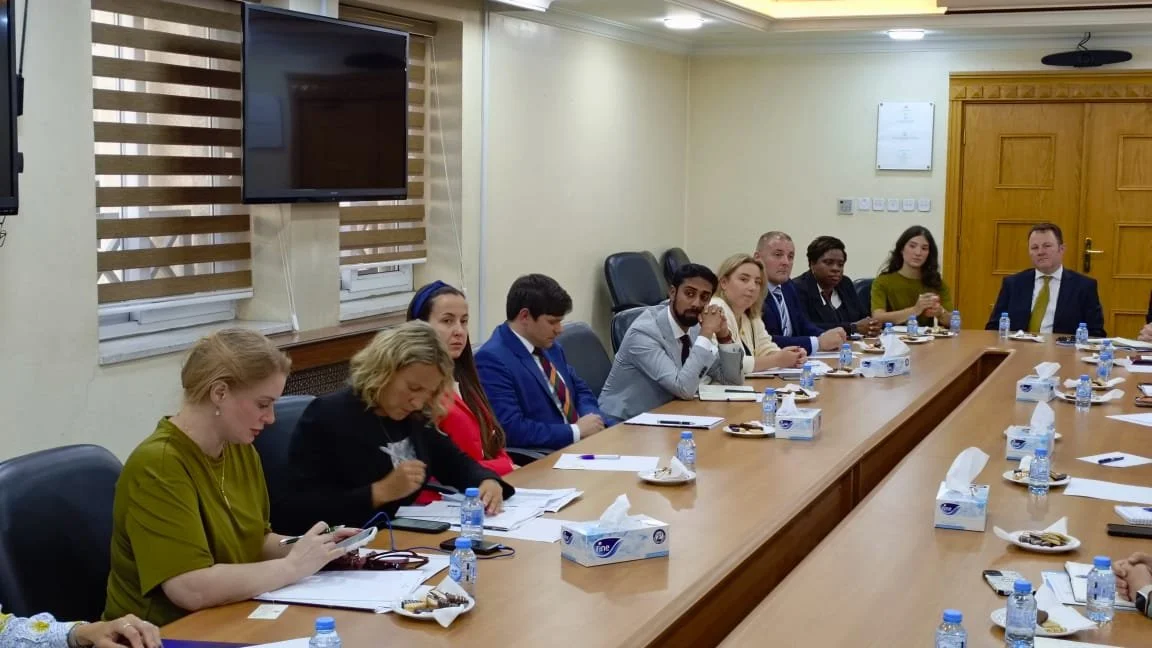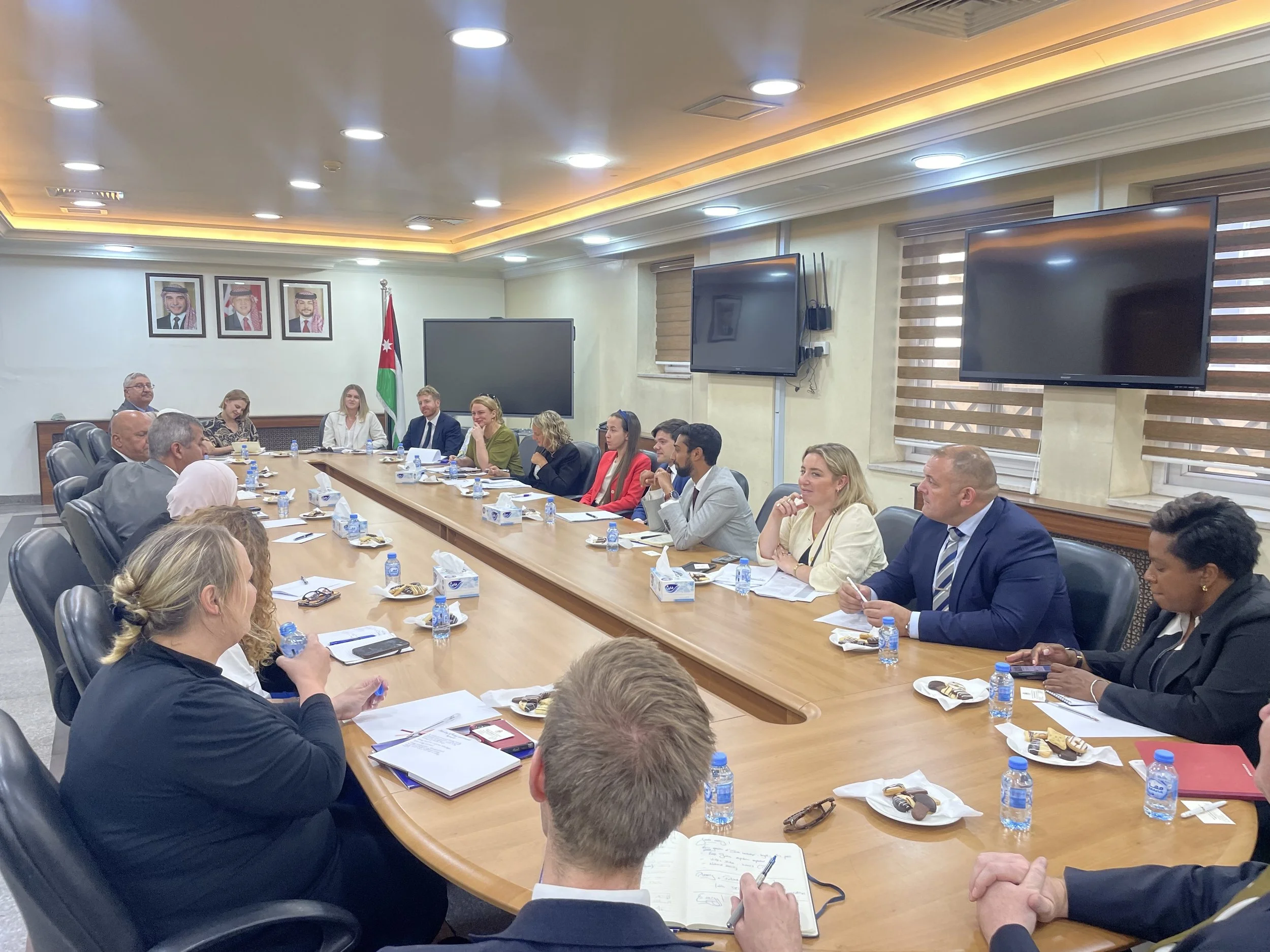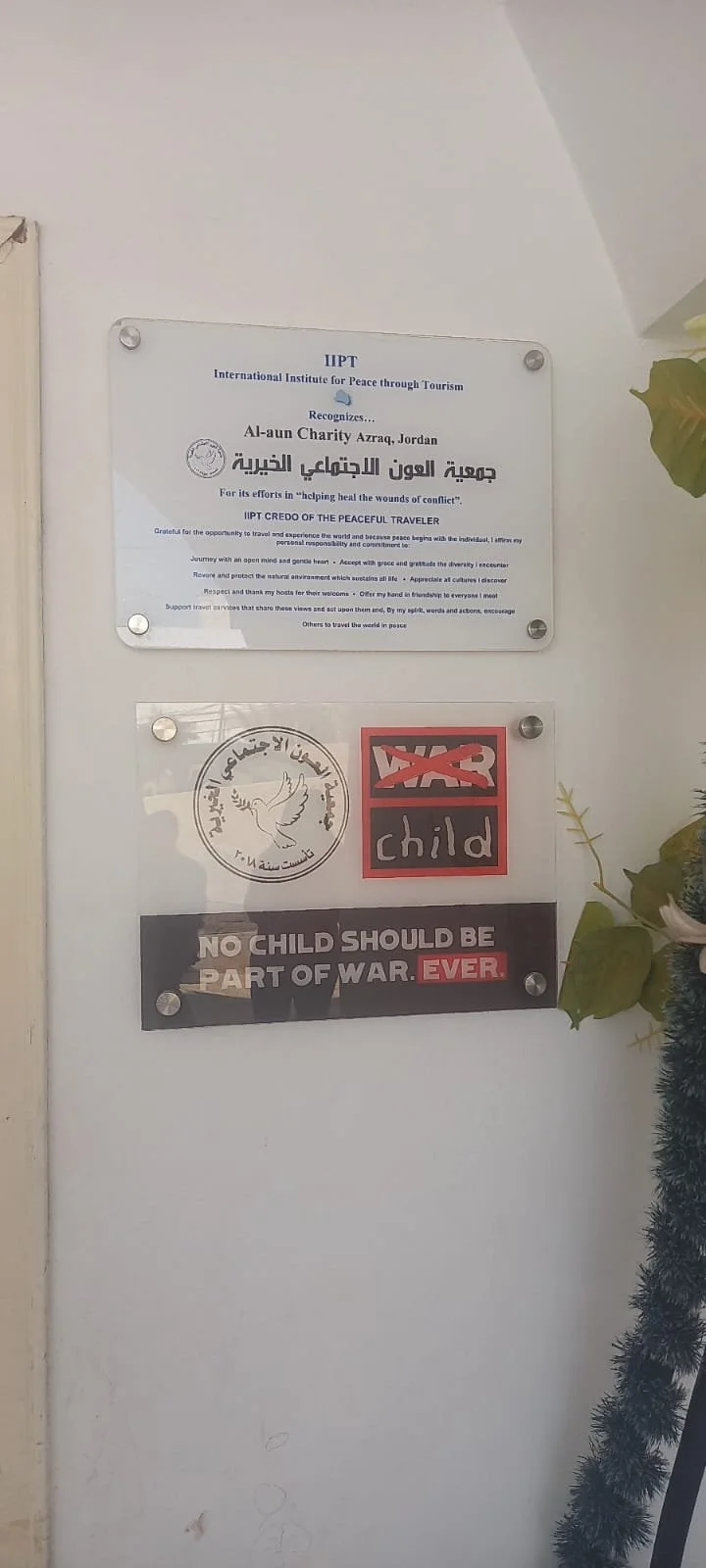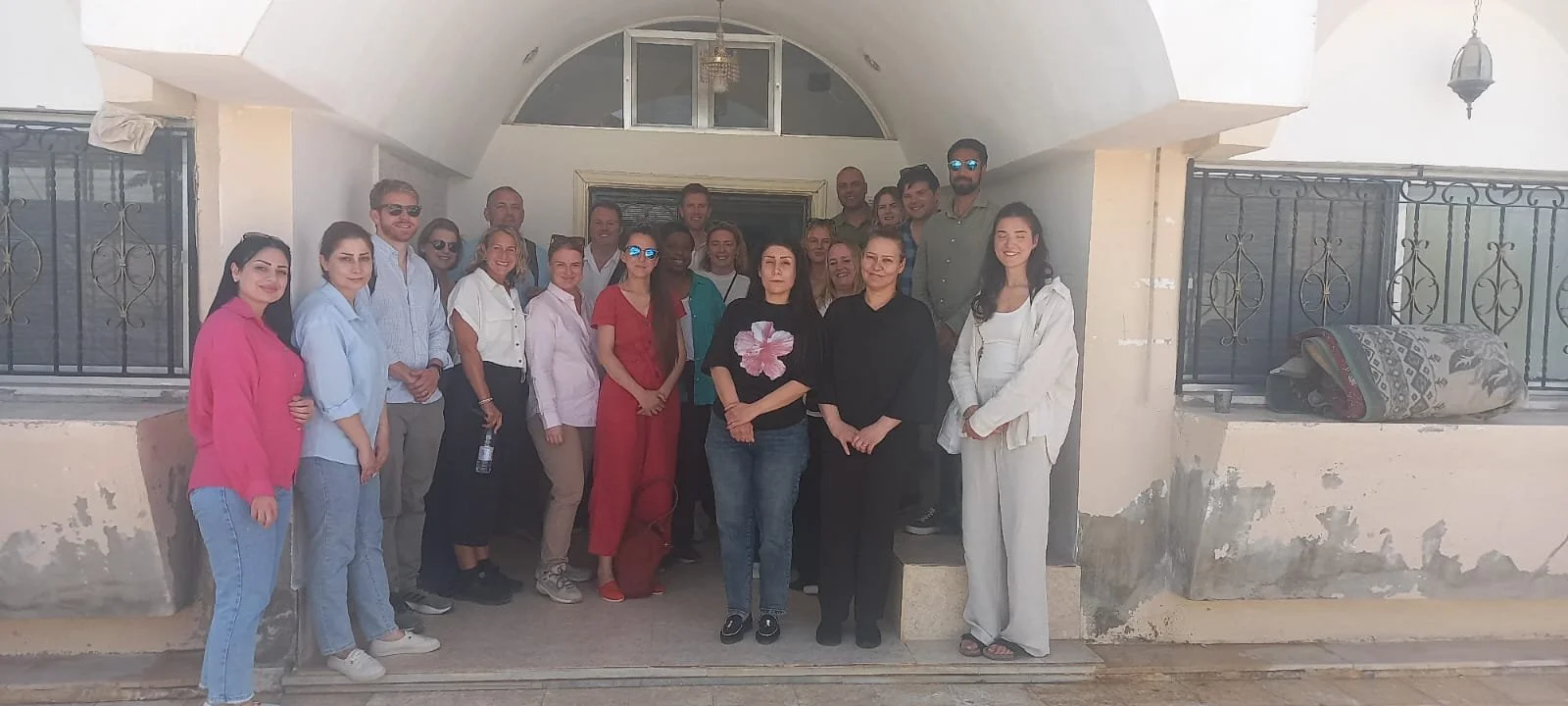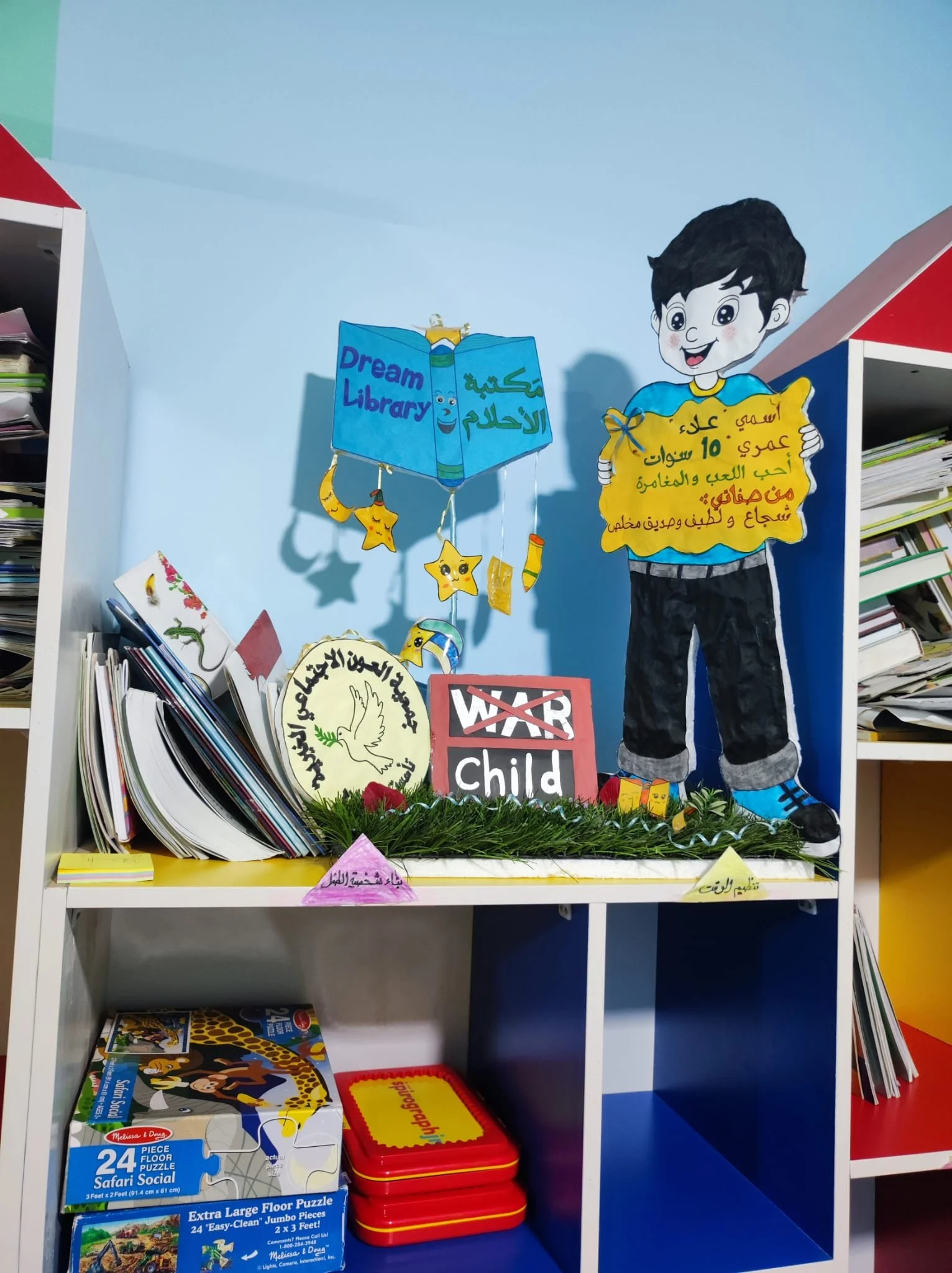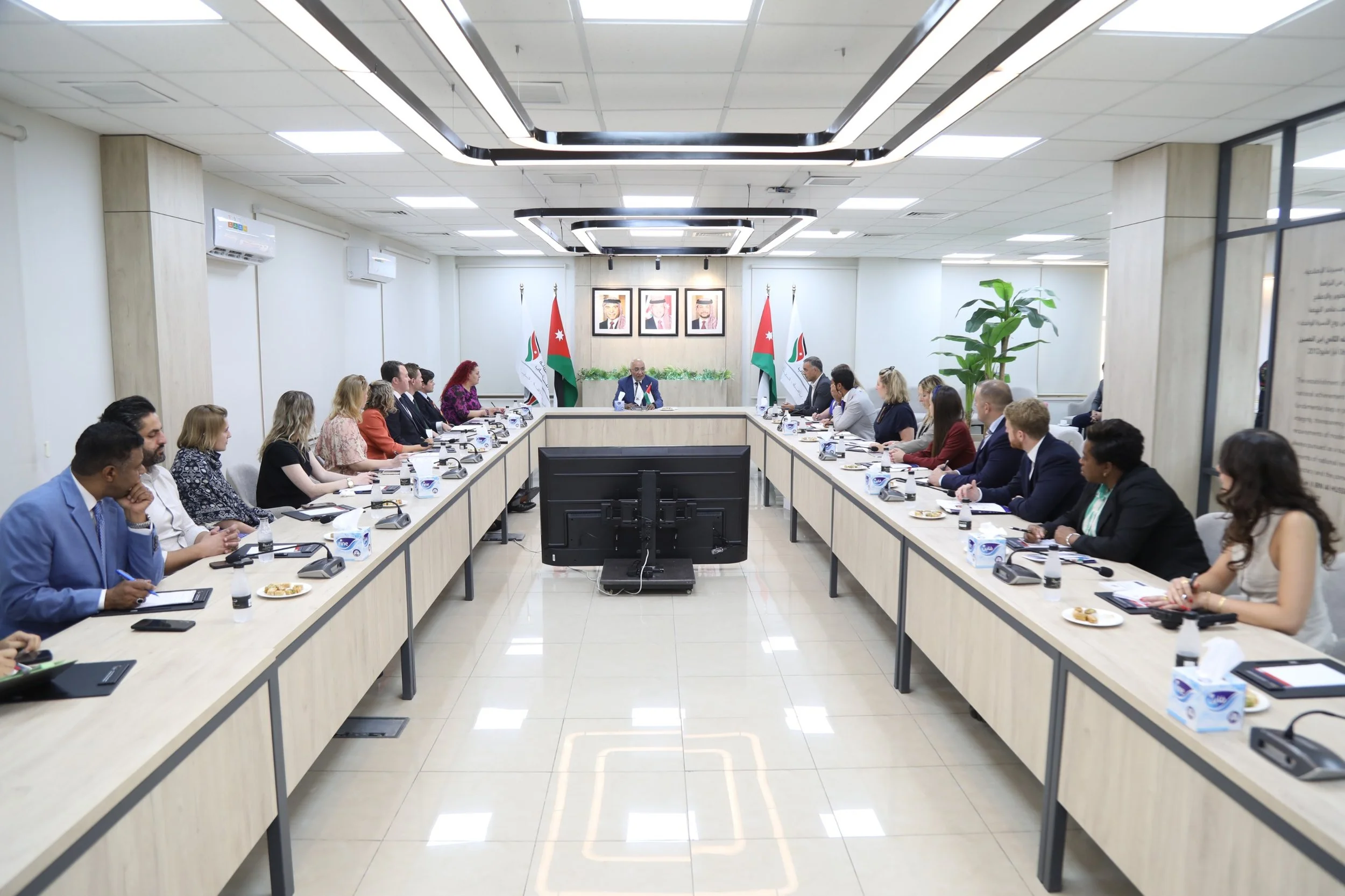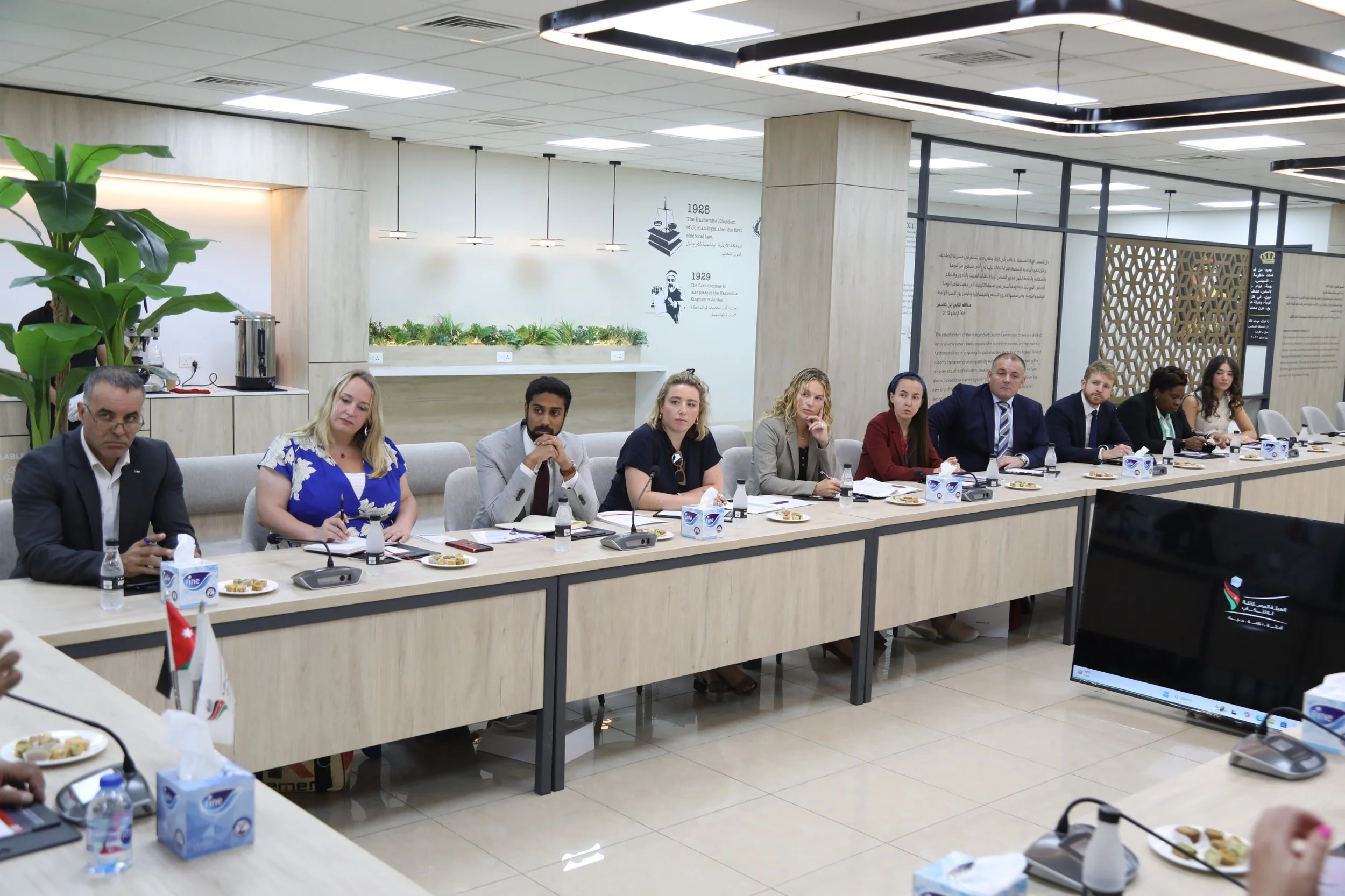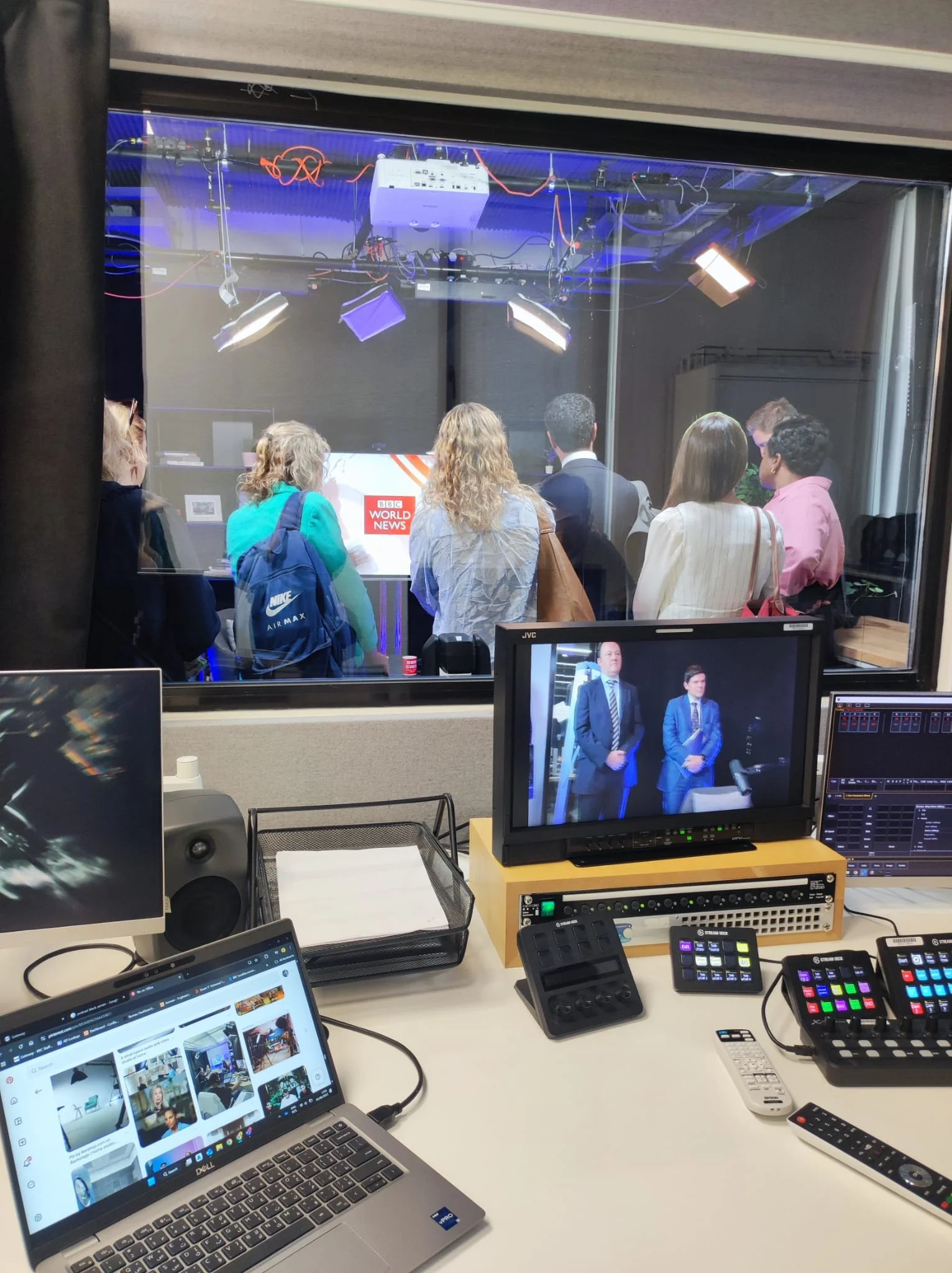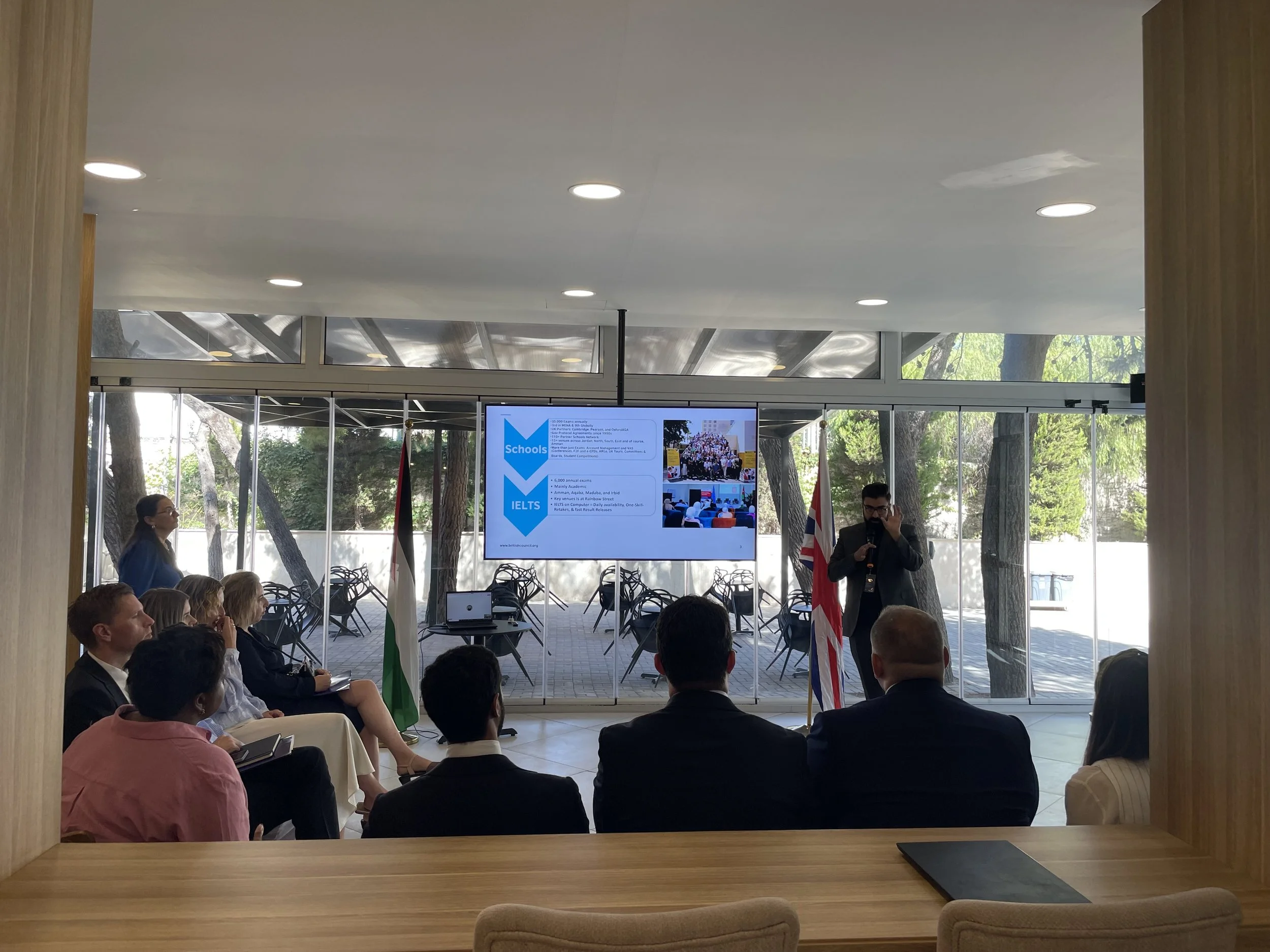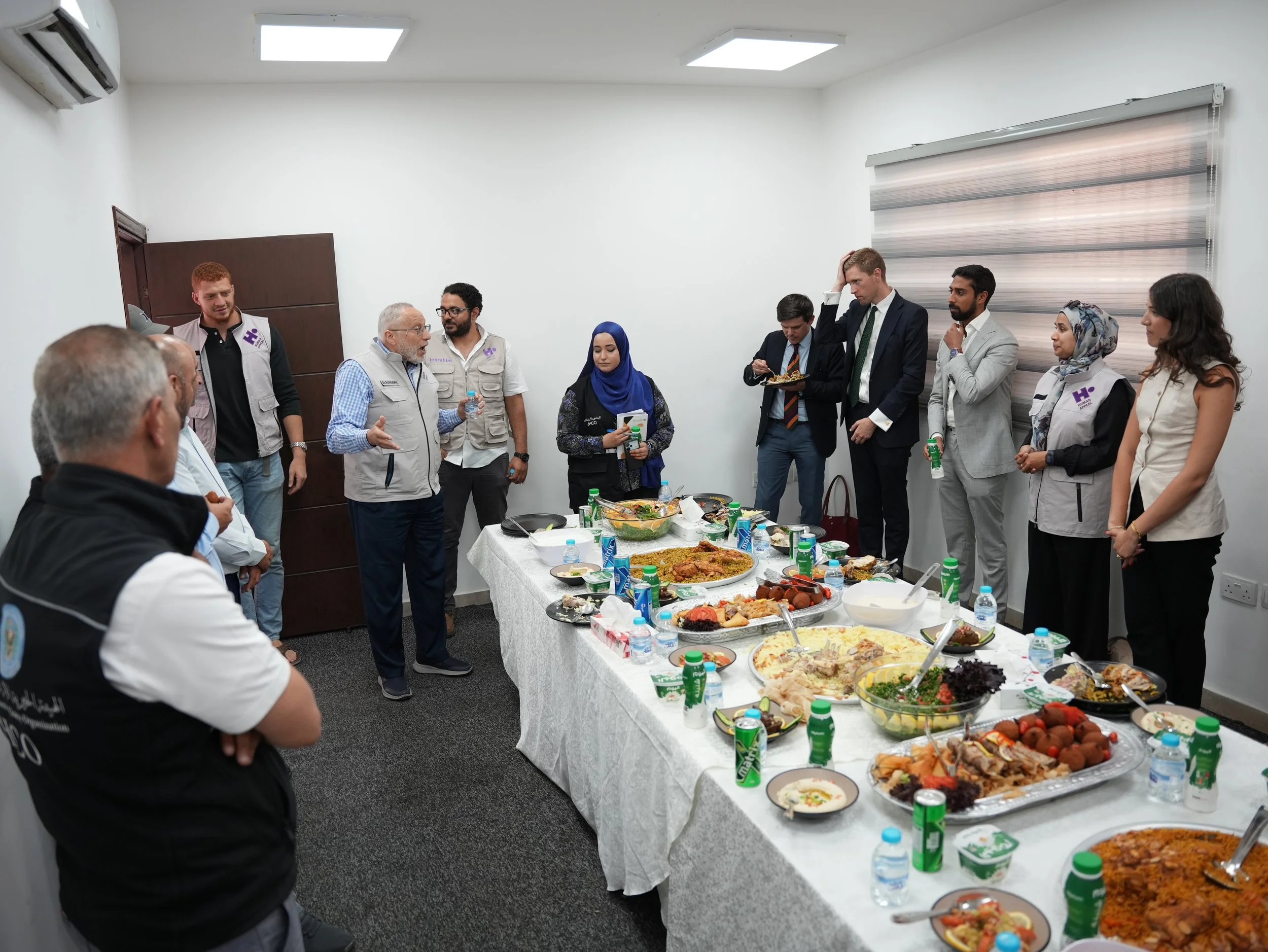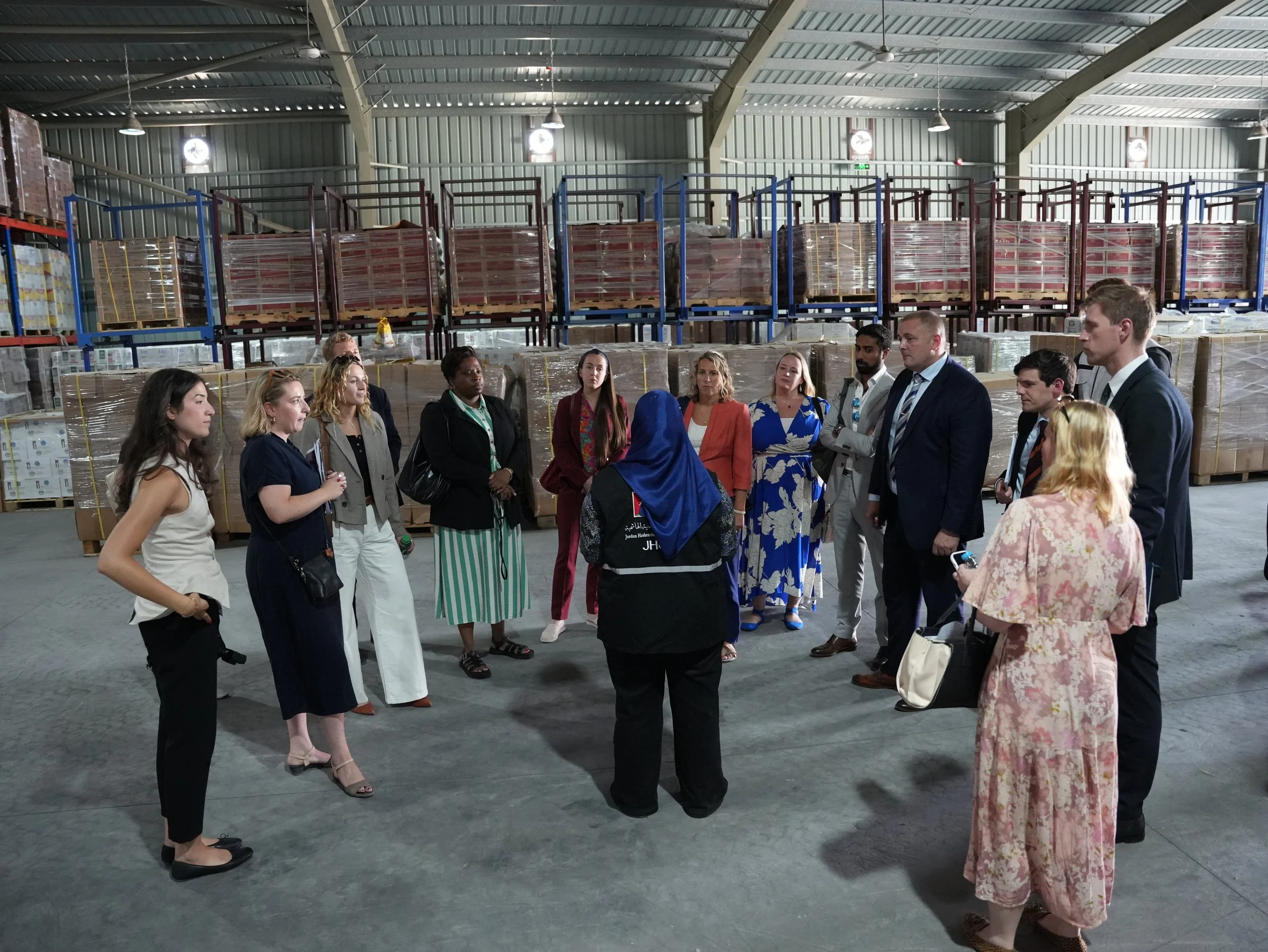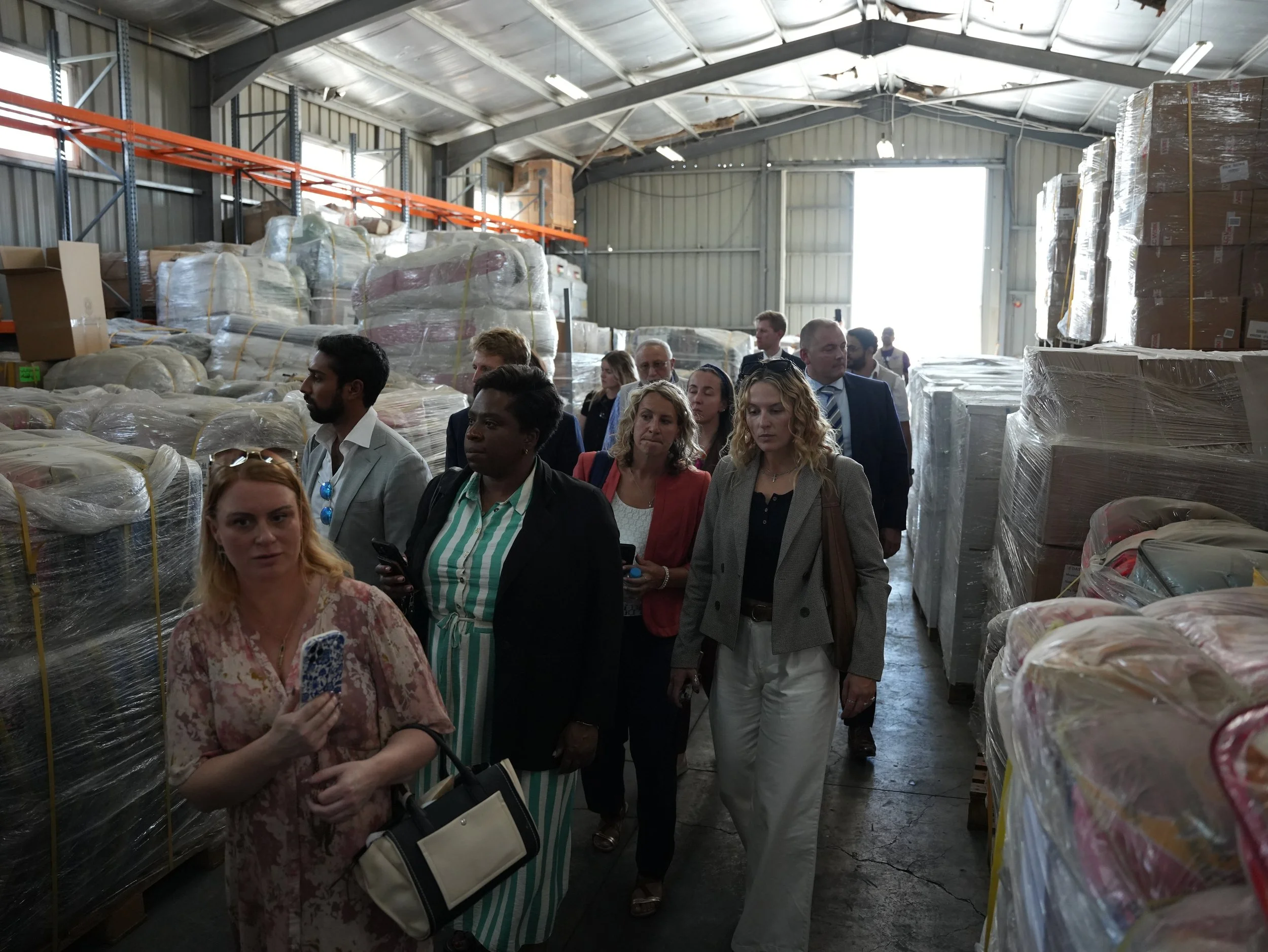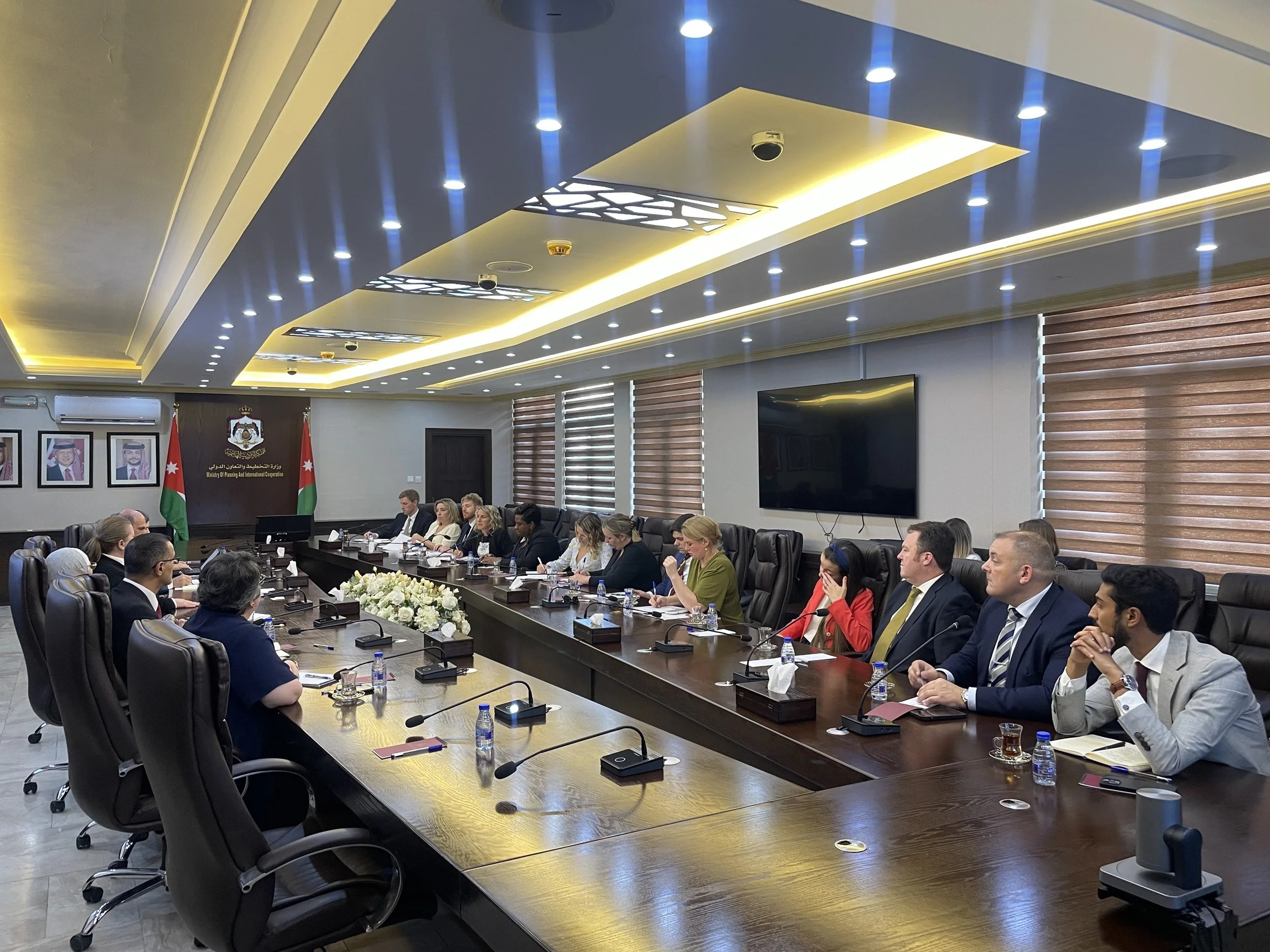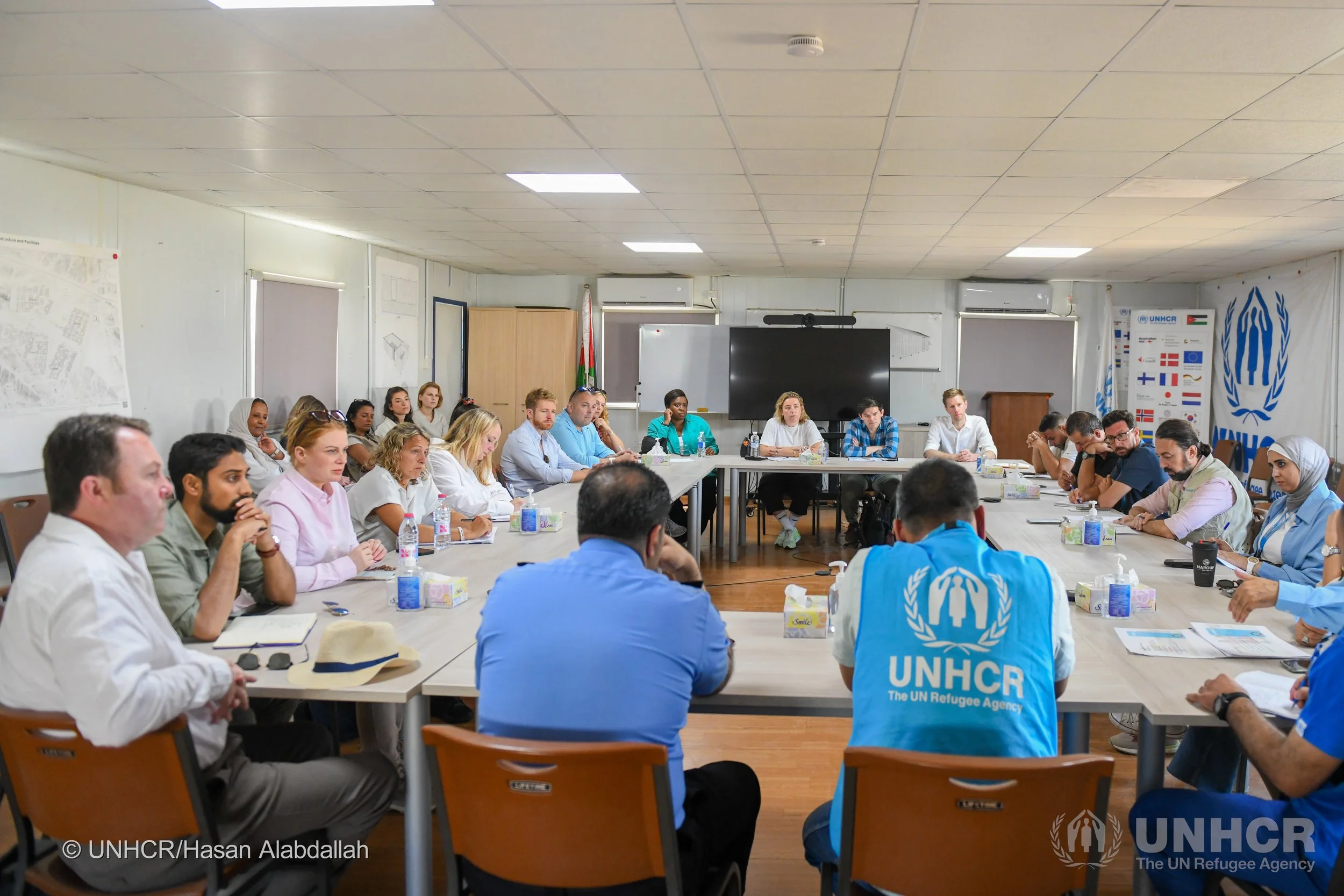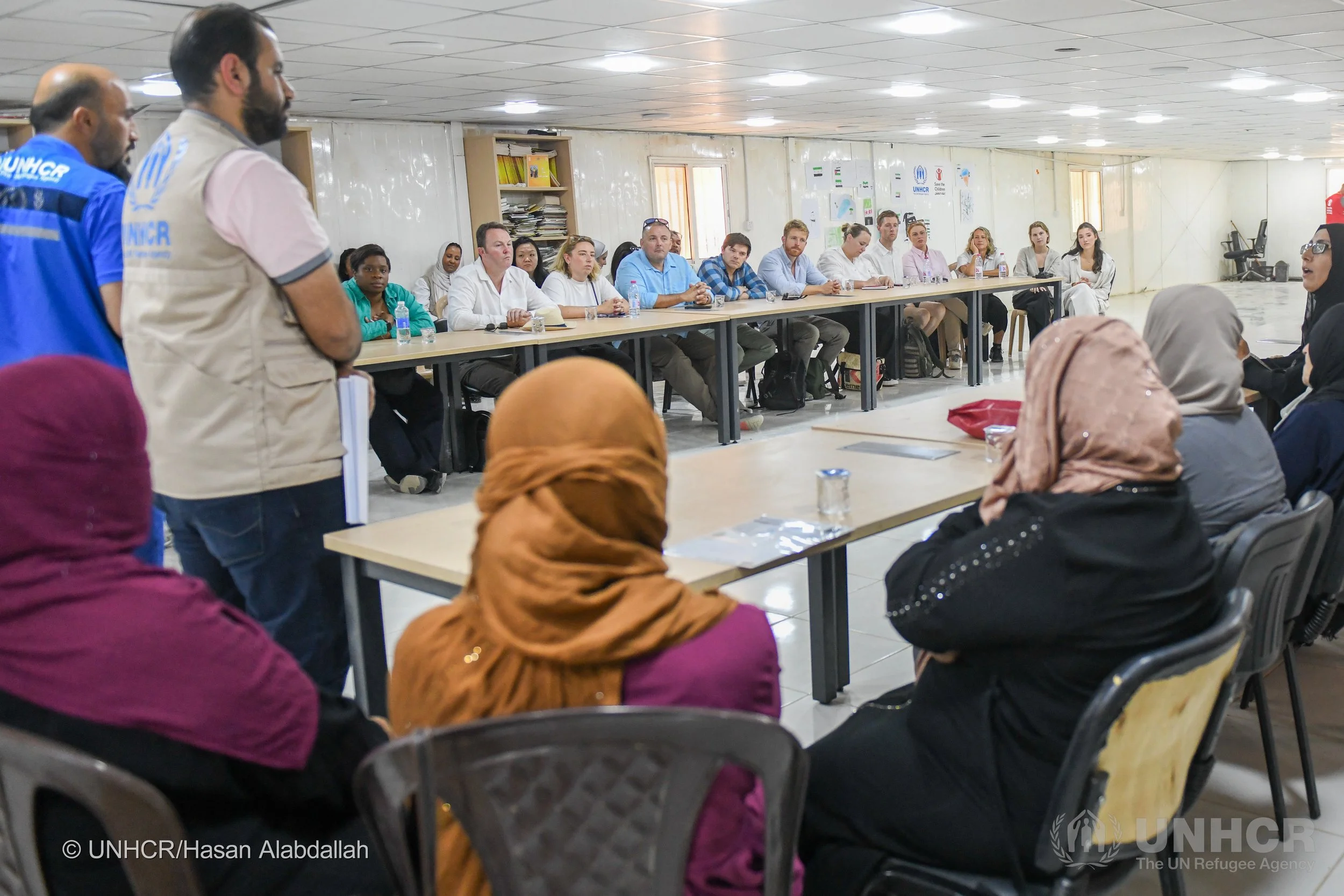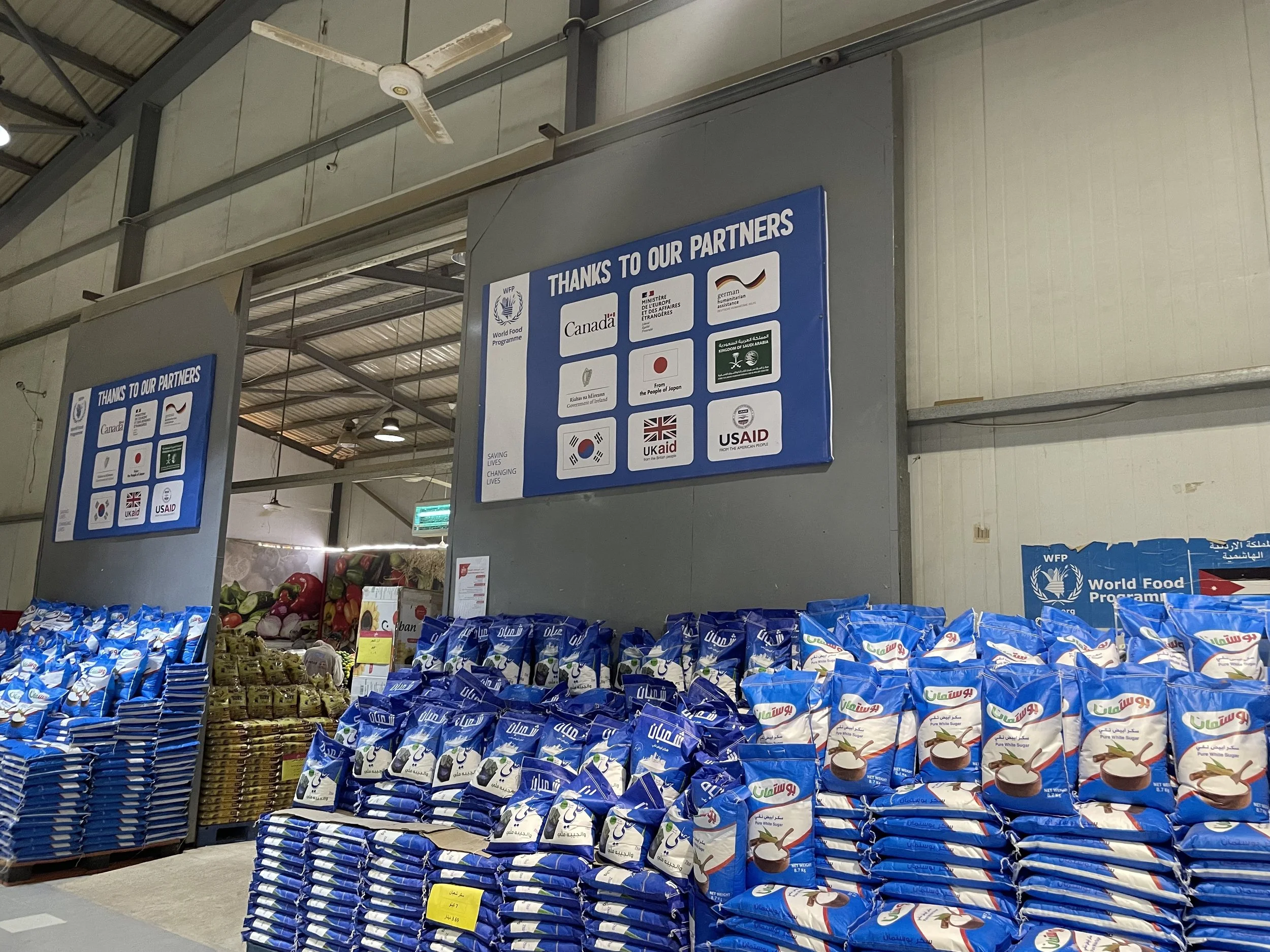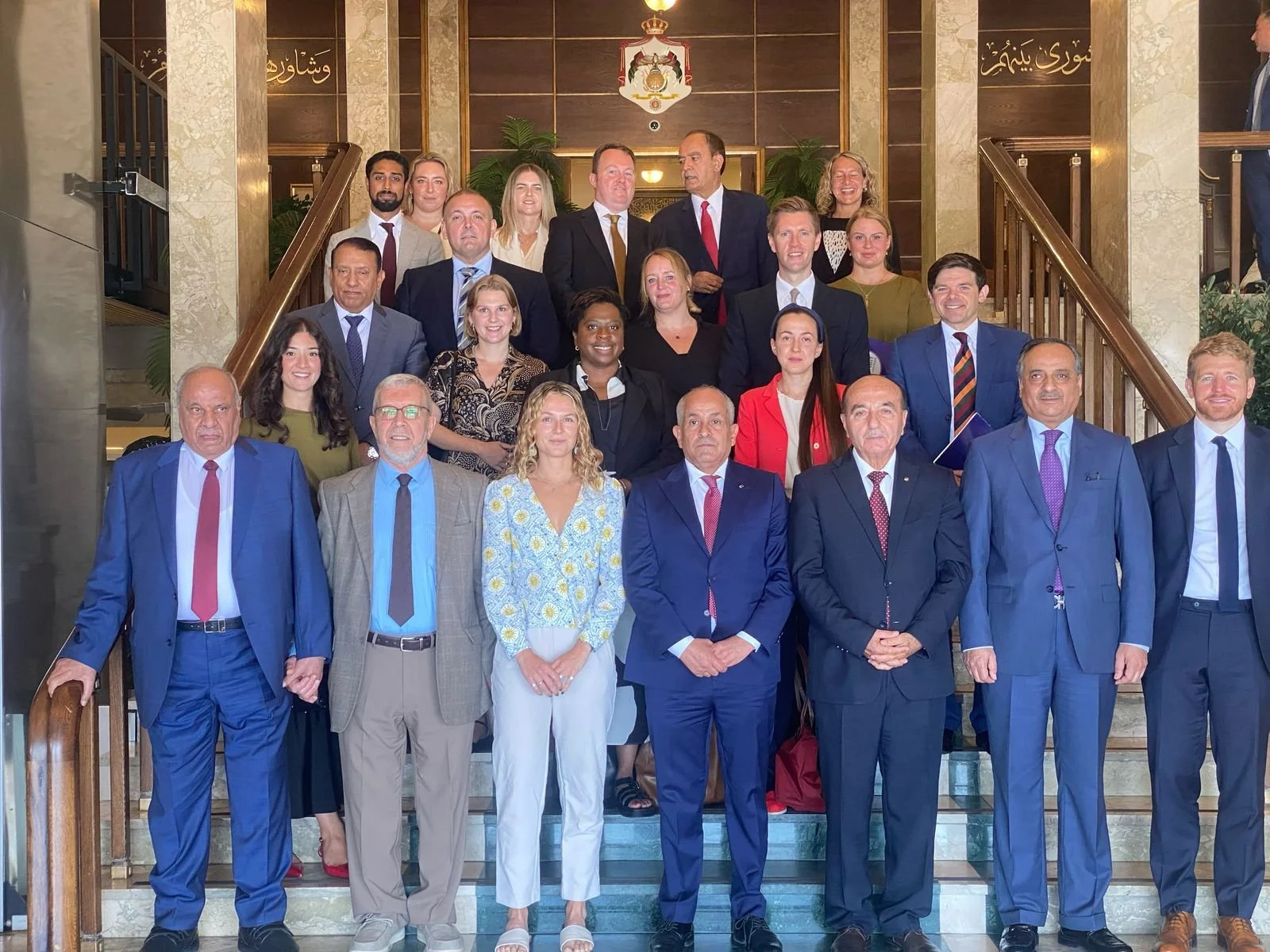
3rd - 8th August
Jordan Future Leaders - August
As part of the Future Leaders Programme, the Coalition for Global Prosperity brought a cross-party group of future parliamentary candidates to Jordan. The programme brings together the next generation of politicians who share an interest in foreign affairs and who intend to develop their understanding of the UK’s role internationally to ensure that Britain remains a force for good on the world stage.
Over several days, the delegation gained first-hand insight into Jordan’s pivotal role in a turbulent region, observing how the UK works alongside one of its most trusted Middle Eastern allies across diplomacy, development, and defence. The visit highlighted the challenges and opportunities facing Jordan and the implications these have for regional stability and the UK’s own strategic interests.
The programme began with meetings in Jordan’s Senate and House of Representatives Foreign Affairs Committees, including with Rapporteur of the Senate Committee on Arab, International Affairs and Expatriates, His Excellency Mr Ali Al-Ayed and the Chair of the Foreign Affairs Committee, Her Excellency Dina Albashir. Discussions covered the pressures Jordan faces in hosting one of the largest refugee populations per capita in the world, its role in facilitating humanitarian aid to Gaza following the lifting of the blockade in July 2025, and the implications of the UK’s conditional recognition of a Palestinian statehood.
The delegation was honoured to meet His Excellency Ayman Al Safadi, Jordan’s Deputy Prime Minister and Minister of Foreign Affairs - one of the region’s most influential diplomats - who shared invaluable insights on Jordan’s balancing act as a stabilising force in the region. His Excellency Al Safadi stressed the urgency of advancing credible negotiations towards a viable two-state solution as the only sustainable path to peace between Israelis and Palestinians, and underlined Jordan’s role as a trusted mediator in bringing the conflict to an end, and the risks posed by regional instability - including the spread of radicalisation - if progress stalls.
The delegation also met with Her Excellency Zeina Toukan, Minister of Planning and International Cooperation, who outlined Jordan’s ambitious Economic Modernisation Vision for 2033, and with His Excellency Dr. Saleh A. Al-Kharabsheh, Minister of Energy and Mineral Resources, who detailed the country’s goal of generating 50% of its electricity from renewable sources by 2030 as part of its strategy to become a regional leader in energy security and green hydrogen. Dr. Al-Kharabsheh emphasised the urgency of reducing reliance on imported fuels and called for greater international cooperation on critical minerals, particularly in the context of Jordan’s acute water and energy scarcity
The delegation were also briefed on UK-backed initiatives such as the Jahez project, which supports the Government of Jordan’s Climate-Refugee Nexus Initiative to strengthen the climate resilience of refugees and their host communities.
Ambassador Philip Hall OBE kindly welcomed CGP back to his residence to host the Future Leader’s delegation for a working dinner, joined by the Deputy Development Director and the Head of Political and Governance at the British Embassy in Amman. The evening offered an in-depth briefing on the UK’s engagement in Jordan and the wider region, as well as the geopolitical challenges facing both countries.
In a visit to Azraq Refugee Camp, home to approximately 37,000 Syrian refugees, the delegation met residents who spoke openly about the daily challenges they face. One former lawyer spoke of the struggle to rebuild a life in Jordan within the constraints of the camp and the insecurity of relying on limited financial support. Families described how limited job opportunities, rising costs, and restricted access to food shape their lives, noting that security remains the most decisive factor in whether they would consider returning to Syria.
At the camp’s registration centre, the delegation were briefed on the voluntary return process to Syria, including the careful assessment steps UNHCR undertakes to ensure returnees are safe and informed. While some families opt to return, many remain hesitant due to ongoing security concerns, lack of infrastructure, and uncertainty about long-term stability in their home communities.
The visit concluded at a local supermarket, where the World Food Programme outlined the growing risks to security should funding shortfalls continue. As with Za’atari Refugee Camp, visited by a previous CGP delegation, residents face the very real prospect of losing essential support between September and December this year due to aid cuts, which risks leaving families with no financial means for food.
Following the camp visit, the delegation travelled to Azraq town, a nearby urban area. With roughly 81% of Jordan’s refugees living in urban settlement, understanding how programmes operate in these settings is essential. They met with War Child and local implementing partners to speak with beneficiaries about how initiatives support children and caregivers coping with post-war trauma through mental health interventions.
Returning back to Amman, the delegation met with senior officials at the Directorate of Military Intelligence of the Jordanian Armed Forces for a briefing on border security, counter-trafficking operations and UK-Jordan military cooperation.
The delegation also met with the Independent Electoral Commission to learn about ongoing democratic reforms and initiatives to ensure transparent and fair elections. They discussed efforts to encourage participation among women, young people, and minority groups, highlighting Jordan’s commitment to inclusive democratic processes.
Following this, the delegation visited the BBC World Service, where they discussed the vital role of Arabic-language news in providing credible information across the region. In an era of widespread disinformation and hostile state influence, the BBC highlighted impartial and transparent reporting as crucial to their high-regional trust in an ever-complex political context.
Building on the multifaceted role of the UK’s engagement in the region, the delegation then met with the British Council to discuss the UK’s soft power influence. They focused particularly on English-language programmes, which equip young Jordanians with skills that enhance access to higher education in the UK and improve employment prospects locally, helping to address high levels of youth unemployment. These initiatives support a two-way partnership, benefiting both young Jordanians and strengthening the UK’s educational, cultural, and economic links.
The group then travelled to Zarqa to visit the Jordanian Hashemite Charity Organisation’s (JHCO) warehouses, which coordinates UK funded life-saving aid for Gaza via Jordan. The delegation witnessed the scale and complexity of the operations: warehouses filled with essential food, medical supplies, emergency shelter, and clothing, all prepared for delivery via air drops and secure land crossings. They were briefed on the logistical and security challenges of delivering aid to Gaza, as well as Jordan’s crucial role in facilitating humanitarian assistance.
The visit concluded with a private dinner generously hosted by His Excellency Samir Rifai, 38th Prime Minister of Jordan and Vice President of the Senate. The evening offered a rare opportunity for the delegation to reflect on the week’s discussions, the enduring strength of the UK–Jordan partnership, and the value of the UK’s historic role and deep understanding of the region in supporting Jordan’s stability and advancing peace and security - both now and in the years ahead - across the wider Middle East.
